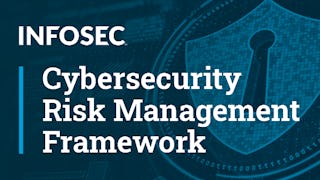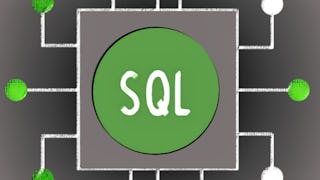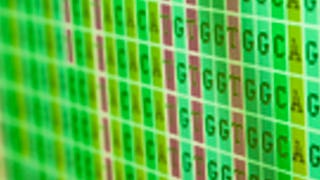- Browse
- Business English
Results for "business english"
 Status: Free TrialFree TrialU
Status: Free TrialFree TrialUUniversity of Michigan
Skills you'll gain: Policy Development, AI Enablement, Responsible AI, Labor Relations, Workforce Management, Generative AI, Automation, Artificial Intelligence, Business Ethics, Job Analysis, Customer Relationship Management
4.5·Rating, 4.5 out of 5 stars10 reviewsBeginner · Course · 1 - 4 Weeks
 Status: Free TrialFree Trial
Status: Free TrialFree TrialSkills you'll gain: Risk Management Framework, Cyber Risk, Federal Information Security Management Act, NIST 800-53, Systems Development Life Cycle, Cybersecurity, Security Management, Cyber Governance, Cyber Security Strategy, Risk Management, Security Controls, Infrastructure Security, Cyber Security Assessment, Vulnerability Assessments, Authorization (Computing), Security Requirements Analysis, Continuous Monitoring, Cyber Security Policies, Information Assurance, Information Systems Security
4.4·Rating, 4.4 out of 5 stars221 reviewsBeginner · Specialization · 3 - 6 Months
 Status: PreviewPreviewU
Status: PreviewPreviewUUniversity at Buffalo
Skills you'll gain: Building Design, Sustainable Technologies, Sustainable Development, Energy and Utilities, Electrical Power, Sustainable Architecture, Sustainable Engineering, Workforce Planning, Gap Analysis, Climate Change Mitigation, Training Programs, Emerging Technologies, Professional Networking, Semiconductors
4.7·Rating, 4.7 out of 5 stars228 reviewsBeginner · Course · 1 - 3 Months
 Status: Free TrialFree TrialD
Status: Free TrialFree TrialDDuke University
Skills you'll gain: Web Scraping, MySQL, SQL, JSON, Scripting, Data Persistence, Data Manipulation, Data Structures, Database Management, Databases, Data Import/Export, Data Capture, Spatial Analysis, Python Programming, Hypertext Markup Language (HTML)
4.4·Rating, 4.4 out of 5 stars108 reviewsIntermediate · Course · 1 - 4 Weeks
 Status: Free TrialFree TrialU
Status: Free TrialFree TrialUUniversity of Toronto
Skills you'll gain: Bioinformatics, Network Analysis, Data Visualization Software, Data Analysis, Data Mining, Exploratory Data Analysis, Databases
4.8·Rating, 4.8 out of 5 stars253 reviewsIntermediate · Course · 1 - 3 Months
 Status: Free TrialFree TrialU
Status: Free TrialFree TrialUUniversity of Minnesota
Skills you'll gain: Operations Research, Mathematical Modeling, Business Modeling, Business Analytics, Analytics, Data Modeling, Business Mathematics, Process Optimization, Data-Driven Decision-Making, Microsoft Excel, Decision Making, Linear Algebra, Spreadsheet Software, Graphing
4.7·Rating, 4.7 out of 5 stars90 reviewsBeginner · Course · 1 - 4 Weeks
 Status: Free TrialFree TrialU
Status: Free TrialFree TrialUUniversity of California, Irvine
Skills you'll gain: Parent Communication, Student Engagement, Student Support and Services, Teaching, Instructional Strategies, Community Development, Instructional Design, Classroom Management, K-12 pedagogy, Rapport Building, Differentiated Instruction, Digital pedagogy, Blended Learning, Interactive Learning, Curriculum Development, Interpersonal Communications
4.6·Rating, 4.6 out of 5 stars582 reviewsMixed · Course · 1 - 3 Months
 Status: Free TrialFree TrialU
Status: Free TrialFree TrialUUniversity of Colorado Boulder
Skills you'll gain: Electrical Engineering, Linear Algebra, Physics, Applied Mathematics, Advanced Mathematics, Mathematical Modeling, Engineering Analysis, Differential Equations, Simulations, Physical Science
4.5·Rating, 4.5 out of 5 stars88 reviewsIntermediate · Course · 1 - 3 Months
 Status: Free TrialFree Trial
Status: Free TrialFree TrialSkills you'll gain: Linux Commands, Metasploit, Open Web Application Security Project (OWASP), Linux, Penetration Testing, Vulnerability Scanning, Command-Line Interface, Exploitation techniques, Scripting, Vulnerability Assessments, Brute-force attacks, General Networking, Python Programming, Web Applications, Cybersecurity, Data Ethics, Firewall, Network Security, Wireless Networks, System Configuration
4.3·Rating, 4.3 out of 5 stars46 reviewsBeginner · Specialization · 3 - 6 Months
 G
GGoogle Cloud
Skills you'll gain: Virtual Machines, Web Servers, Google Cloud Platform, Cloud Deployment, Cloud Infrastructure, Virtual Networking, Command-Line Interface, Cloud Computing, Operating Systems
4.6·Rating, 4.6 out of 5 stars30 reviewsBeginner · Project · Less Than 2 Hours
 Status: Free TrialFree TrialU
Status: Free TrialFree TrialUUniversity of Colorado Boulder
Skills you'll gain: Biochemistry, Chemistry, Biology, General Science and Research, Molecular Biology, Scientific Methods, Water Quality, Nutrition and Diet
4.5·Rating, 4.5 out of 5 stars239 reviewsBeginner · Course · 1 - 4 Weeks

Skills you'll gain: Microsoft Power Automate/Flow, Email Automation, Verification And Validation, Document Management, Microsoft Excel, Data Import/Export, Staff Management, Intranet, Microsoft 365, Spreadsheet Software
4.4·Rating, 4.4 out of 5 stars28 reviewsBeginner · Guided Project · Less Than 2 Hours
Searches related to business english
In summary, here are 10 of our most popular business english courses
- Generative AI Integration: Effects on Labor and Workforce: University of Michigan
- Cybersecurity Risk Management Framework: Infosec
- Renewable Energy: Fundamentals and Job Opportunities: University at Buffalo
- Scripting with Python and SQL for Data Engineering: Duke University
- Plant Bioinformatics: University of Toronto
- Optimization for Decision Making: University of Minnesota
- Advanced Instructional Strategies in the Virtual Classroom: University of California, Irvine
- Foundations of Quantum Mechanics: University of Colorado Boulder
- The Complete Ethical Hacking Bootcamp: Beginner To Advanced: Packt
- Creating a Virtual Machine: Google Cloud










